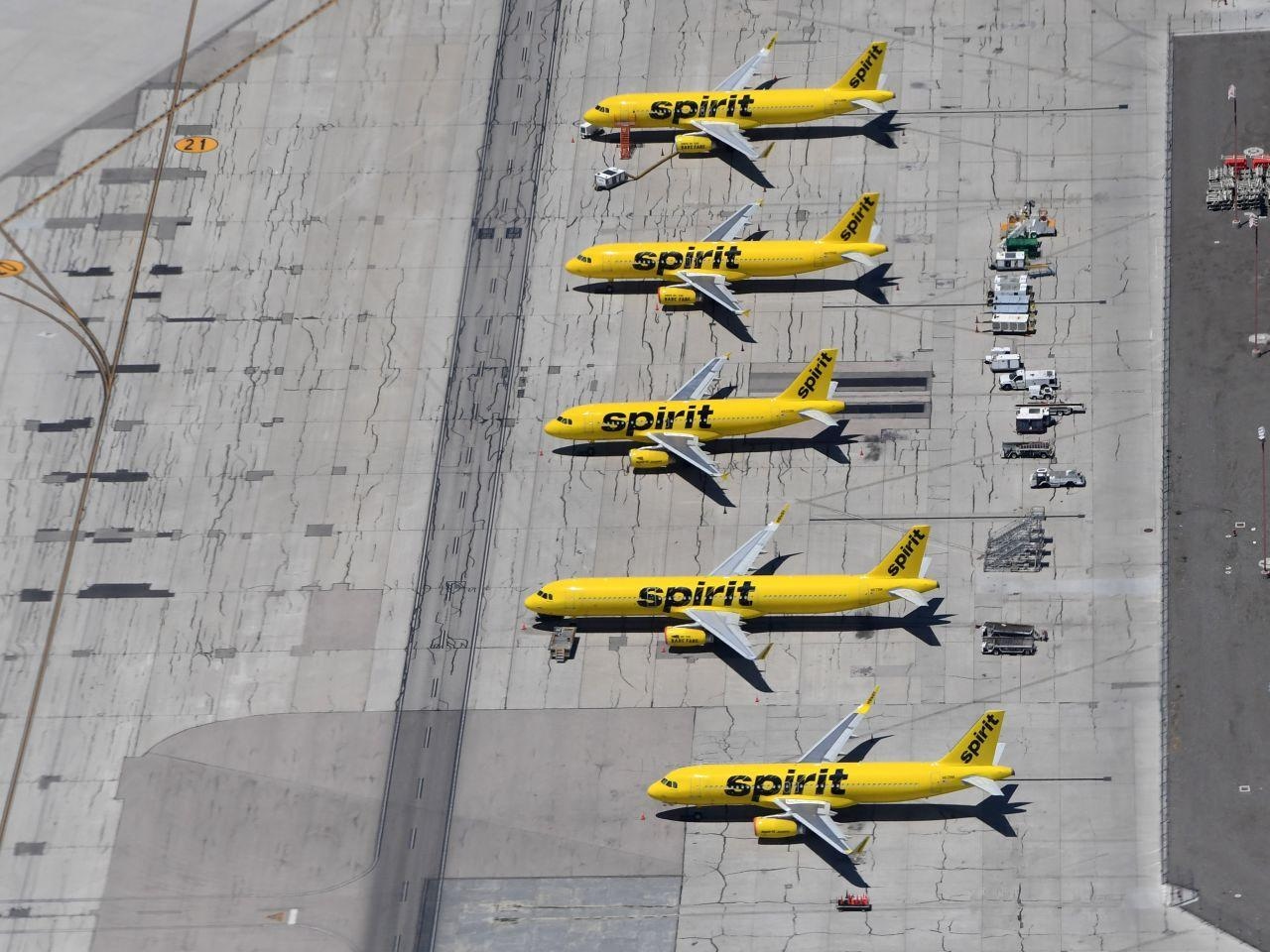AeroGenie — Your Intelligent Copilot.
Trending
Categories
Spirit Airlines Receives Compensation Over Engine Recall

Spirit Airlines Receives Compensation Over Engine Recall
Operational Challenges Amid Global Supply Chain Disruptions
Spirit Airlines has secured compensation following a recent engine recall, a development that may influence its operational costs and overall profitability. The airline, like many others in the sector, continues to grapple with significant challenges stemming from widespread disruptions in global supply chains, particularly those triggered by the coronavirus pandemic.
Electronics manufacturers, which provide essential components for modern aircraft, are currently facing prolonged delays in parts shipments. A recent survey conducted by the electronics trade group IPC reveals that approximately 65% of electronics producers anticipate shipment delays, with most expecting disruptions to last between four and six weeks. This survey, encompassing 150 companies across diverse industries—from electric vehicles to smartphones—highlights the extensive reach of these supply chain interruptions.
Impact on Manufacturing and Aviation Sectors
The IPC report emphasizes the dependency of many US and European manufacturers on Chinese inputs to complete their production processes domestically. Delays in receiving these components inevitably lead to setbacks in the manufacturing of finished goods. The technology sector, and by extension the aviation industry, is particularly vulnerable due to its reliance on Chinese suppliers. Prolonged factory shutdowns, travel restrictions, and quarantine measures have hindered the restoration of full production capacity, complicating efforts to maintain standard operational levels.
For Spirit Airlines, the compensation related to the engine recall may alleviate some immediate financial burdens. However, analysts caution that rising operational expenses could exert pressure on the airline’s profitability. Market observers are closely monitoring Spirit’s financial stability and operational efficiency, especially as competitors may leverage this situation to underscore their own engine reliability and operational resilience.
Broader Industry Implications and Responses
The airline industry at large is also considering legal avenues in response to aircraft delivery delays, a strategy that could alter competitive dynamics within the sector. In parallel, some carriers are exploring alternative sourcing strategies, though the complexity and duration of supply chain realignment present significant challenges.
The repercussions of these disruptions extend beyond aviation. Major technology firms have already signaled the severity of the situation. Apple recently cautioned investors about likely revenue shortfalls due to production and sales difficulties linked to the outbreak. Similarly, Microsoft announced expectations of missing quarterly targets for Windows and Surface laptop sales as supply chains recover more slowly than anticipated.
The IPC survey suggests that the impact on finished technology products—and industries dependent on them—may be more severe than initial supplier estimates. While suppliers advise companies to anticipate an average delay of three weeks, most manufacturers are preparing for disruptions lasting five weeks or longer. As IPC’s chief economist Shawn DuBravac explains, “The finished product is nothing more than the sum of a lot of individual components, so if even one of those doesn’t show up, they can’t start manufacturing until they have it.”
As Spirit Airlines and its peers navigate these ongoing challenges, the industry’s capacity to adapt will be crucial in shaping both short-term performance and long-term competitiveness.

Emirates Unveils Cabin Design for New Boeing 777X

Eighteen Years On, the Airbus A380 Remains Central to a $34 Billion Airline

How a boom in luxury airline seats is slowing down jet deliveries

Navitaire Outage Attributed to Planned Maintenance

DigiYatra Debuts Outside Aviation at India AI Impact Summit

Vietnam Orders Strengthen Boeing’s Commercial Outlook

Airbus Signals Uncertainty Over Future A400M Orders

JobsOhio Awards $2 Million Grant to Hartzell Propeller for Innovation Center

Collins Aerospace Tests Sidekick Autonomy Software on YFQ-42A for U.S. Air Force CCA Program

How the Airbus A350-1000 Compares to the Boeing 777
